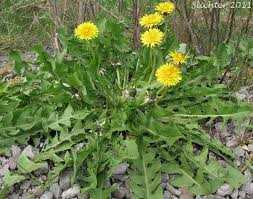
A Common Weed with an Uncommon Power
For years, most of us have seen the bright yellow dandelion as nothing more than a stubborn weed — something to pull out of the garden and forget about. But according to recent research from the University of Windsor in Canada, this everyday plant might be hiding an extraordinary secret: the potential to fight cancer.
The Science Behind the Discovery
A team of scientists at the University of Windsor has been studying the effects of dandelion root extract (DRE) on cancer cells, and their early findings are turning heads. In laboratory tests, the extract appeared to trigger apoptosis — the body’s natural process for destroying damaged or harmful cells.
What’s rem arkable is that while DRE targeted cancer cells, it left healthy cells largely unharmed, a result that traditional chemotherapy often struggles to achieve.
Promising, But Still Early
Some lab reports claimed that the extract destroyed up to 95% of certain cancer cells within 48 hours, creating excitement among researchers and the public alike. However, experts emphasize that these results were observed only in laboratory conditions, not in human patients.
The early promise of DRE has led to preclinical and small-scale clinical trials, aiming to understand whether this extract can truly work safely and effectively in humans.
Expert Opinions and Caution
Dr. Siyaram Pandey, one of the lead researchers, explained, “We’re not claiming this is a miracle cure, but it’s a natural compound with serious potential. Our goal is to understand how it works and how it might complement existing cancer treatments.”
While DRE has shown effects against leukemia, melanoma, and pancreatic cancer cells, scientists caution that it should not replace standard medical therapies. No health authority has yet approved dandelion root as a cancer treatment.
Nature’s Hidden Pharmacy
This discovery highlights a larger truth — nature may already hold many of the answers we seek in medicine. The very weeds we overlook could one day contribute to life-saving treatments.
As research continues, the humble dandelion reminds us that sometimes, the most powerful discoveries begin in the most unexpected places.
Email:--------------------------shahulfat710@gmail.com
A Common Weed with an Uncommon Power
For years, most of us have seen the bright yellow dandelion as nothing more than a stubborn weed — something to pull out of the garden and forget about. But according to recent research from the University of Windsor in Canada, this everyday plant might be hiding an extraordinary secret: the potential to fight cancer.
The Science Behind the Discovery
A team of scientists at the University of Windsor has been studying the effects of dandelion root extract (DRE) on cancer cells, and their early findings are turning heads. In laboratory tests, the extract appeared to trigger apoptosis — the body’s natural process for destroying damaged or harmful cells.
What’s rem arkable is that while DRE targeted cancer cells, it left healthy cells largely unharmed, a result that traditional chemotherapy often struggles to achieve.
Promising, But Still Early
Some lab reports claimed that the extract destroyed up to 95% of certain cancer cells within 48 hours, creating excitement among researchers and the public alike. However, experts emphasize that these results were observed only in laboratory conditions, not in human patients.
The early promise of DRE has led to preclinical and small-scale clinical trials, aiming to understand whether this extract can truly work safely and effectively in humans.
Expert Opinions and Caution
Dr. Siyaram Pandey, one of the lead researchers, explained, “We’re not claiming this is a miracle cure, but it’s a natural compound with serious potential. Our goal is to understand how it works and how it might complement existing cancer treatments.”
While DRE has shown effects against leukemia, melanoma, and pancreatic cancer cells, scientists caution that it should not replace standard medical therapies. No health authority has yet approved dandelion root as a cancer treatment.
Nature’s Hidden Pharmacy
This discovery highlights a larger truth — nature may already hold many of the answers we seek in medicine. The very weeds we overlook could one day contribute to life-saving treatments.
As research continues, the humble dandelion reminds us that sometimes, the most powerful discoveries begin in the most unexpected places.
Email:--------------------------shahulfat710@gmail.com
© Copyright 2023 brighterkashmir.com All Rights Reserved. Quantum Technologies